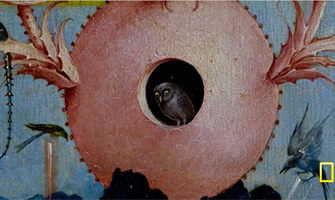Choose a topic area to explore or browse the featured stories below.
Discovering Our Distant Ancestors
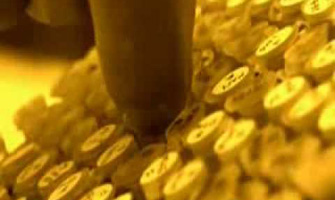

Watch: Spencer Wells takes us, as he says, on a journey that began “a long time ago [when] your family were on the brink of dying out. Yet, somehow against impossible odds they managed not only to survive but to become the most successful people on the planet.”
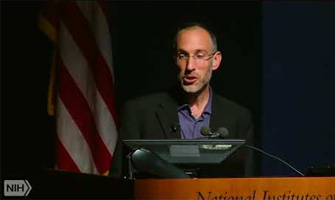

Watch: David Reich describes how aDNA sequencing is carried out with the ability now to produce aDNA at an industrial scale and at much reduced cost. He explains how the analysis of aDNA has led to new insights about human biological changes over time and summarizes the history of modern humans in Europe over the approximately 30,000–45,000 years since they first arrived.
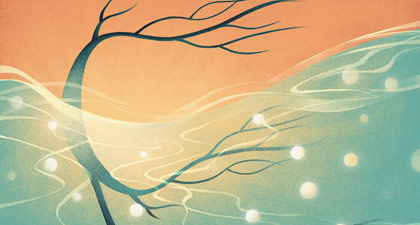

Listen: A lot of us understand biological sex with a pretty fateful underpinning: if you’re born with XX chromosomes, you’re female; if you’re born with XY chromosomes, you’re male. But it turns out, our relationship to the opposite sex is more complicated than we think
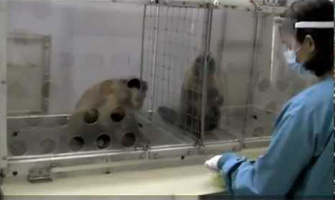

Watch: Is a Sense of Fairness Uniquely Human?
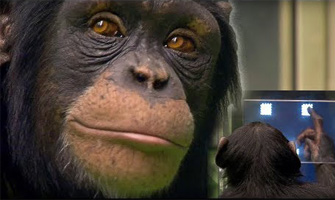

Watch: Is Your Memory as Good as a Chimp’s?
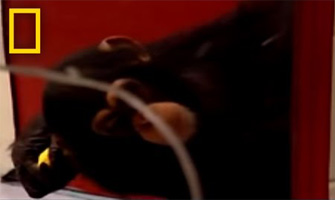

Watch: Self-Recognition in Apes. Researchers set up tests to show that great apes can recognize themselves in the mirror.


Watch: Lice and Human Evolution. Watch the amazing story of how the genetic history of lice gives us clues to mysteries of our own evolution.
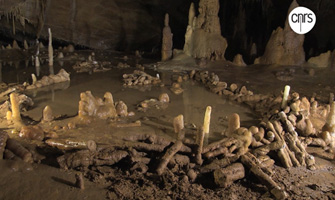

Watch: Cave Structures Shed New Light on Neanderthals. Broken stalagmites arranged in circles indicate that humans started occupying caves more than 100 millennia before previously thought and knew how to use fire to navigate dark spaces well before Homo Sapiens.
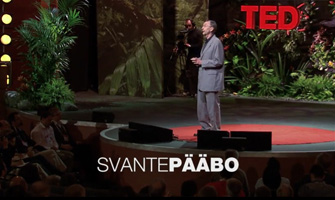

Watch: Did Our Ancestors Have Sex with Neanderthals? Sharing the results of a massive, worldwide study, geneticist Svante Pääbo shows the DNA proof that early humans mated with Neanderthals after we moved out of Africa.
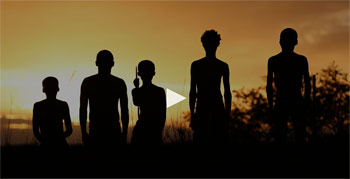
Watch: Great Human Odyssey (PBS NOVA). Our ancient human ancestors once lived only in Africa, in tiny bands of a few thousand hunter-gatherers. Then we moved out, spreading rapidly to every corner of the planet. How did we acquire the skills, technology and talent to thrive in every environment on earth – cross the Sahara on foot, survive frigid ice ages, and sail to remote Pacific islands?
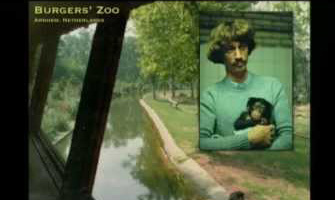

Watch: Morality Without Religion. “I am not sure that religion is at the root of morality because I personally think that morality existed before we had religions … all human societies have a form of religion so what does religion contribute to human society – that’s the question.” –Frans de Waal
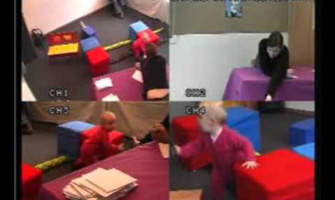

Watch: Experiments with altruism in children and chimps. A series of experiments testing altruism in both very young children and chimpanzees from the Max Planck Institute for Evolutionary Anthropology.
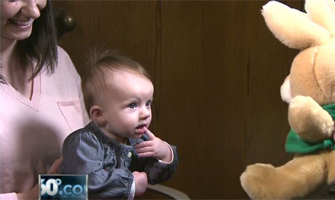

Watch: Are we born with a moral core? The Baby Lab says ‘yes’. Yale University researchers say babies are born with knowledge of right and wrong. A test with puppets shows babies preferring the “good” character most of the time.
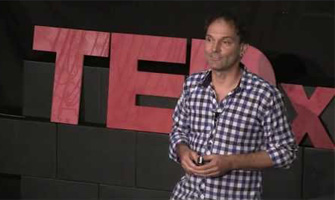

Watch: Clues About the Evolution of Our Extraordinary Minds. Thomas Suddendorf says, “Our exceedingly mysterious and unique status on earth may be largely our own, rather than God’s creation.” What does this mean for our future?
The Evolution of Language
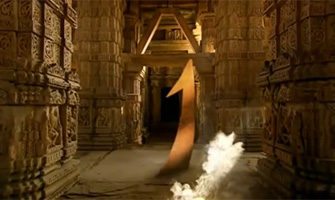

Watch: The Story of 1 (One the number). A BBC documentary about the history of numbers, and in particular, the number 1.
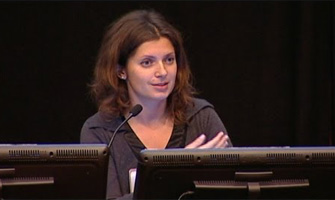

Watch: How the Languages We Speak Shape the Ways We Think. Do speakers of different languages think differently? Does learning new languages change the way you think? Do bilinguals think differently when speaking different languages? Does language shape our thinking only when we’re speaking or does it shape our attentional and cognitive patterns more broadly?
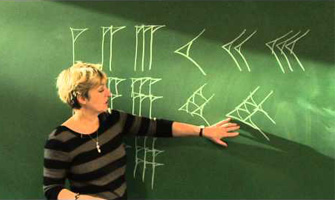

Watch: Babylonian Numbers. Learn to write numbers using the Babylonian base-60 system.
Ideas that Shaped Our Modern World
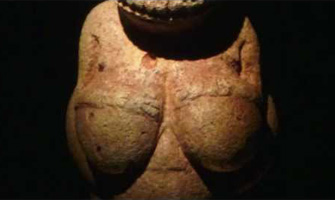

Watch: Nude woman (Venus of Willendorf). What cultural role did this 4.4″ tall statuette of a female figure play in society over 25,000 years ago?
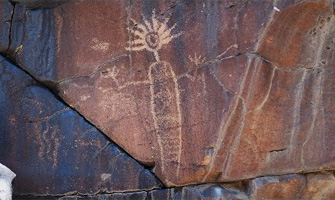

Watch: Talking Stone – Rock Art of the Cosos. Hidden away in the canyons of a top-secret military base on the edge of the Mojave Desert is the largest concentration of rock art in North America. Created over thousands of years by a now vanished culture, it represents the oldest art in California. Talking Stone explores the remote canyons and mysteries surrounding these amazing images.
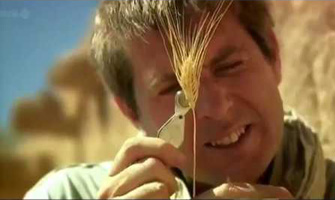

Watch: Göbekli Tepe. How did the first farmers sustain a large community and build Göbekli Tepe 12,000 years ago?
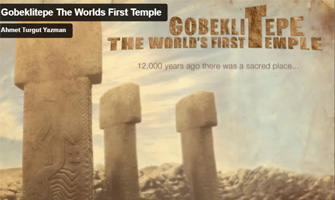

Watch: Göbekli Tepe the Worlds First Temple. This film tells the magnificent story of a temple complex is so impeccably preserved, with evidence so clear, that it might as well have been carved yesterday.
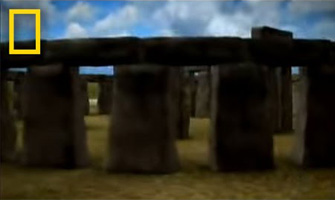

Watch: Secrets of Stonehenge. Many secrets remain surrounding the creation of Stonehenge. Archaeologists try to unravel the mystery.
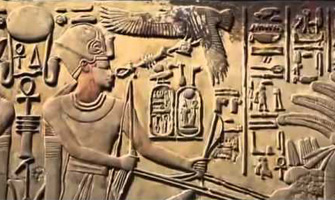

Watch: Secrets of the Aegean Apocalypse. Around 1,200 BC, an ancient Armageddon destroyed nearly every known civilization. What could have caused it? The theories are many, but most now include one mysterious and massively destructive factor – a force only the Egyptians survived to name: The Sea People.


Watch: Plato’s Cave. An animated version of Plato’s The Allegory of the Cave.
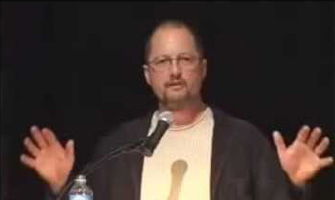

Watch: Misquoting Jesus in the Bible. How might the process of transcription have lead to misunderstandings of the life and teachings of Jesus? Bart D. Ehrman, Heyns Lecture Series, Stanford University.
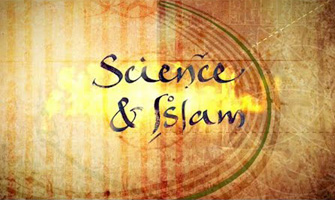

Watch: Science & Islam. The history of Islamic science and it’s subsequent spread through Europe from the BBC.
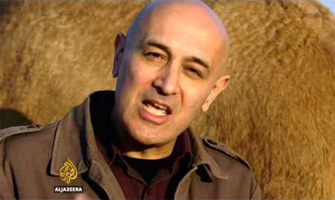

Watch: Al Khwarizmi – The father of algebra. Science in the Golden Age of Islam.
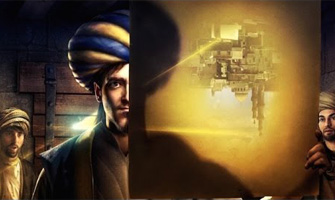

Watch: Ibn Al-Haytham (Alhazen) – Optics: The True Nature of Light | by Jim Al-Khalili.
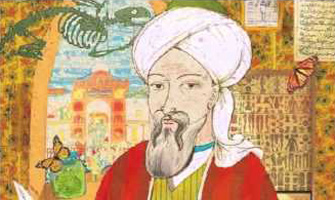

Watch: UNBOXED: Avicenna’s Floating Man & Descartes’ Deceiving Demon.


Watch: Astronomy – The Science of the Stars.
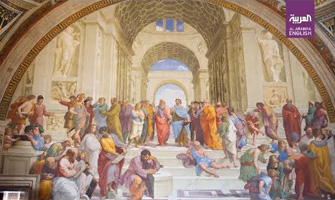

Watch: Ibn Rushd the muslim philosopher who paved the way to the European renaissance.
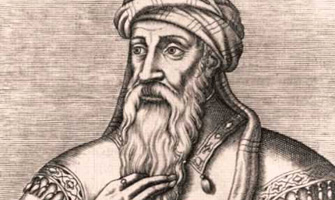

Watch: Maimonides. Melvyn Bragg and guests discuss the life, times and legacy of the great Jewish medieval philsopher, Maimonides.
Tools and the Development of Contemporary Society
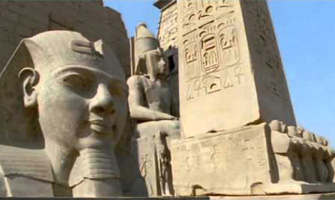

Watch: Guns, Germs, and Steel: The Fates of Human Societies. Based on the book by Jared Diamond.
A Sustainable Planet
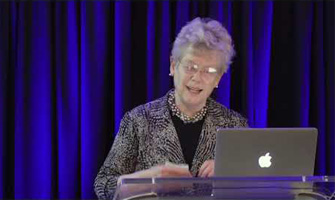

Watch: Cosmic Knowledge and the Future of the Human Race. National Medal of Science winner Sandra Faber describes how the profound insights of cosmology take the issue of sustainability out of the personal and into a more objective consideration of where – and if – we are going.
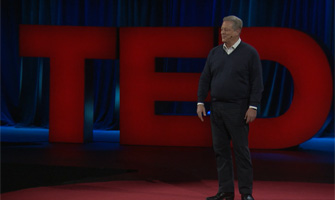

Watch: The Case for Optimism. Al Gore, founder and chairman of The Climate Reality Project, poses three questions that will determine the future of our planet – and why there’s good reason to be optimistic.
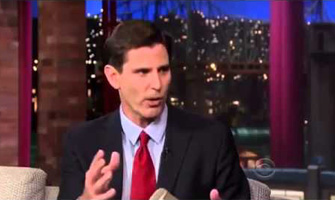

Watch: Astronomy – Mark Jacobson interview on David Letterman. Mark Jacobson presents solutions for global warming and air pollution and energy price stability.
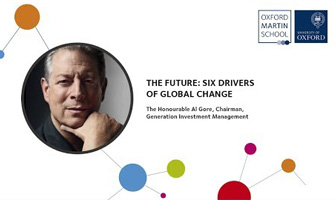

Watch: Al Gore – The future: six drivers of global change. Al Gore surveys our planet’s beclouded horizon and offers a sober, learned, and ultimately hopeful forecast. In The Future, Gore identifies the emerging forces that are reshaping our world.
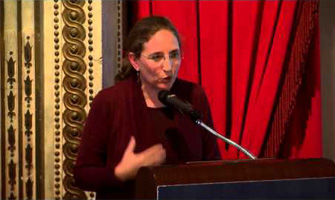

Watch: Book Launch: The Big Ratchet by Ruth DeFries. Professor Ruth DeFries asks “How did we get to be the species that dominates the planet? Can we see any pattern? Can we see any guidance for the future by taking this long lens back on our domination?”
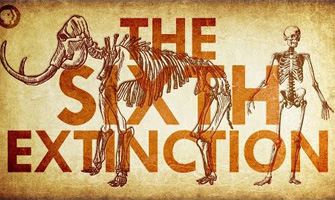

Watch: The Sixth Extinction. This time, we’re the asteroid. A history of mass extinctions from It’s Okay to Be Smart.
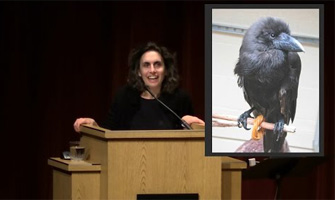

Watch: The Sixth Extinction: Elizabeth Kolbert. Elizabeth Kolbert, Heinz Award-winning staff writer for the New Yorker and author of Field Notes from a Catastrophe: Man, Nature, and Climate Change (2006), discusses her book The Sixth Extinction at OSU.
The Changing World Economy
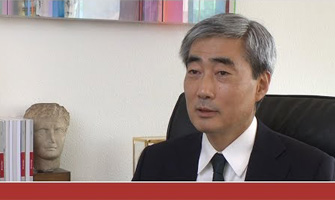

Watch: Cryptocurrencies: Looking Beyond the Hype. Cryptocurrencies’ decentralized model of generating trust limits their potential to replace conventional money.
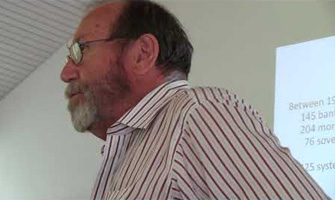

Watch: Money and Sustainability: The Missing Link. Bernard Lietaer prepared a report for the Club of Rome on the link between our monetary system and the unsustainable trends in the world – this is a summary of the report.
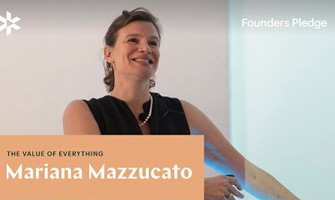

Watch: The Value of Everything | Mariana Mazzucato. Who are the makers and takers in our economy? If we want sustainable and fair economic growth, Professor Mazzucato argues, we need to question the stories we’ve been told about value creation.
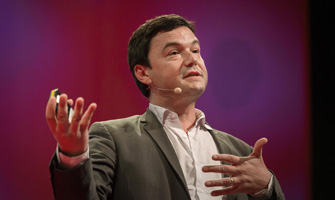

Watch: Thomas Piketty: New thoughts on capital in the twenty-first century. French economist Thomas Piketty caused a sensation in early 2014 with his book on a simple, brutal formula explaining economic inequality: r > g (meaning that return on capital is generally higher than economic growth). Here, he talks through the massive data set that led him to conclude: Economic inequality is not new, but it is getting worse, with radical possible impacts.
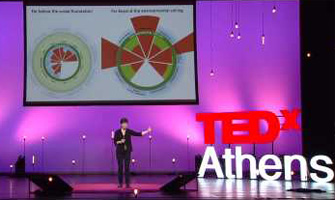

Watch: Kate Raworth – Why it’s time for “Doughnut Economics”. Economic theory is centuries out of date and that’s a disaster for tackling the 21st century’s challenges of climate change, poverty, and extreme inequality. Kate Raworth flips economic thinking on its head to give a crash course in alternative economics, explaining in three minutes what they’ll never teach you in three years of a degree. Find out why it’s time to get into the doughnut…
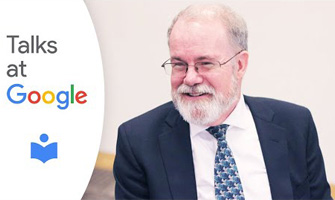

Watch: Can the West Save the Rest. The author of The White Man’s Burden discusses his book that changed the debate on aid, and the role the West should play to promote economic, social, and political development in the developing world.
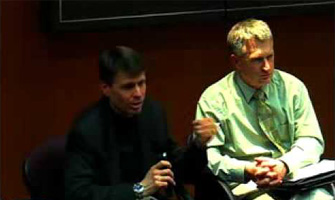

Watch: Perspectives on The White Man’s Burden. Four faculty members share their perspective on William Easterly’s The White Man’s Burden.
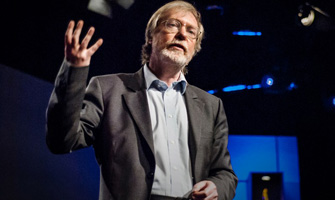

Watch: The Bottom Billion. Around the world right now, one billion people are trapped in poor or failing countries. How can we help them? Economist Paul Collier lays out a bold, compassionate plan for closing the gap between rich and poor.
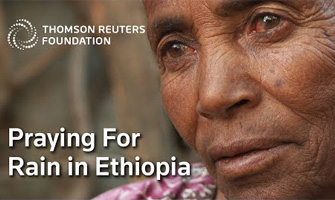

Watch: Praying for rain in Ethiopia. For those who escaped the famines of the 1980s, the current drought in Ethiopia brings back memories of a time they hoped never to see again. Experiencing the worst drought in 50 years, residents of Tsemera in the Northern Highlands have seen their streams dry up and their crops fail. (From Thomson Reuters)

Watch: Starving on the Streets. In July 2015 Nicholas Kristof travelled to South Sudan to cover the war-driven famine and the need for peace.
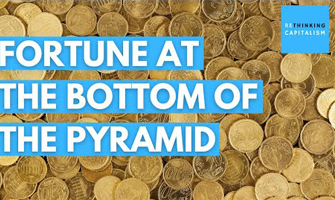

Watch: The Bottom Billion. Around the world right now, one billion people are trapped in poor or failing countries. How can we help them? Economist Paul Collier lays out a bold, compassionate plan for closing the gap between rich and poor.
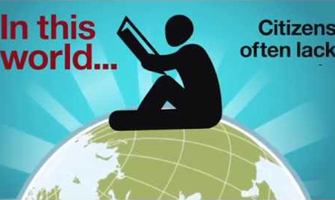

Watch: In This World…. Freedom of information is closely linked to a culture of openness. Open and inclusive societies protect press freedom crucial to sustainable development.
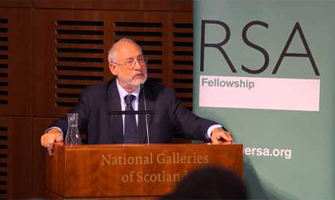

Watch: Creating a Learning Society by Joseph Stiglitz. Watch Joseph E. Stiglitz’ lecture delivered in 2014 at RSA Scotland on the topic of Creating a Learning Society.
Health and Education in the Modern World
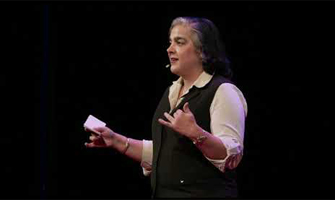

Watch: Coronavirus Is Our Future. Global health expert Alanna Shaikh talks about the current status of the 2019 nCov coronavirus outbreak and what this can teach us about the epidemics yet to come.
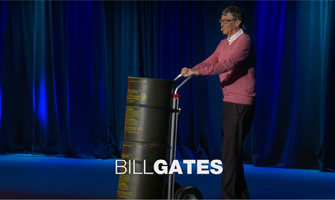

Watch: The Next Outbreak? We’re Not Ready. In 2014, the world avoided a global outbreak of Ebola, thanks to thousands of selfless health workers — plus, frankly, some very good luck. In hindsight, we know what we should have done better. Now’s the time to put all our good ideas into practice, from scenario planning to vaccine research to health worker training.
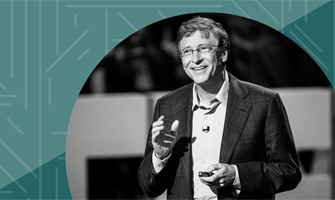

Watch: How We must Respond to the Coronavirus Pandemic. Bill Gates offers insights into the COVID-19 pandemic, discussing why testing and self-isolation are essential, which medical advancements show promise and what it will take for the world to endure this crisis.
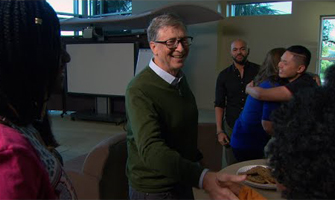

Watch: Why Bill and Melinda Gates put 20,000 Students Through College. The surest way to narrow the wealth gap is to earn a college degree. Now major universities like Princeton are working to lower the price of admission through a new kind of affirmative action, not based on race, but on low-income status.
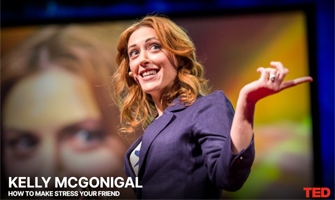

Watch: How to Make Stress Your Friend. Stanford professor, athlete and psychologist Alia Crum investigates the role of mindsets in affecting health behaviors and outcomes.
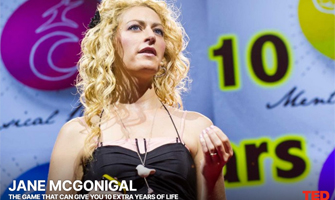

Watch: The Game That Can Give You 10 Extra Years of Life. In this moving talk, McGonigal explains how a game can boost resilience — and promises to add 7.5 minutes to your life.
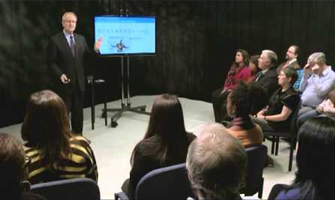

Watch: Healthy Pleasures: The New Science of Happiness. The health benefits of sensuality, optimism and altruism.
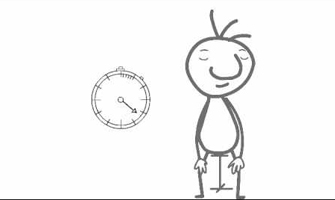

Watch: One-Moment Meditation: “How to Meditate in a Moment”. One moment can change everything.
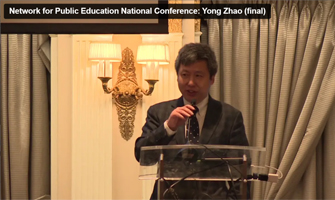

Watch: China is the Wrong Model. Yong Zhao’s lively address brings a thought-provoking perspective on comparing U.S. and Chinese student test scores as a way to evaluate our education systems.
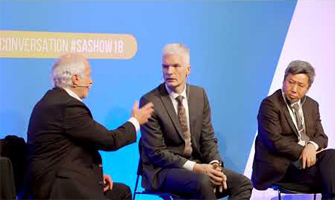

Watch: Experts Debate Merits of PISA. Education scholars Yong Zhao and Andreas Schleicher share their divergent views on the pros and cons of OECD’s international testing program.
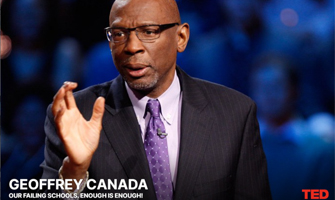

Watch: Our Failing Schools. Enough is Enough. Why does our education system look the way it did 50 years ago? Millions of students were failing then, as they are now — and it’s because we’re clinging to a business model that clearly doesn’t work. Education advocate Geoffrey Canada dares the system to make systematic shifts in order to help greater numbers of kids excel.
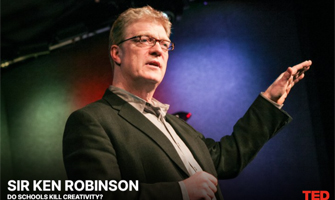

Watch: Do Schools Kill Creativity? Here the entertaining and profoundly moving case for creating an education system that nurtures (rather than undermines) creativity.
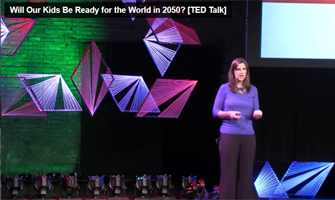

Watch: Will Our Kids Be Ready for the World in 2050? World Savvy founder Dana Mortenson explores how teaching and learning in the U.S. is changing, or should change, in our rapidly evolving, interconnected global society. Will our kids be ready to compete in, and contribute to, a new reality?
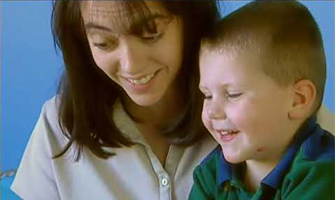

Watch: Magic of Reading. Programs that work: Over the past 16 years, Share Literacy has served over 690,000 disadvantaged children in the U.S. and other countries providing low-cost books, training materials, and professional development services.
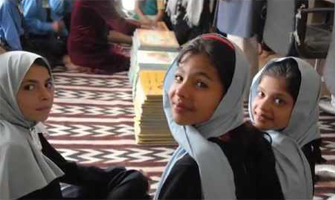

Watch: Peace and Stability Begin with Literacy. The literacy needs of Afghan and Pakistani children are crucial to the stability and progress of their countries and the region, yet their ability to educate its children in turbulent years is severely impeded.
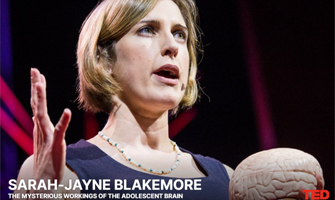

Watch: The Mysterious Workings of the Adolescent Brain. Why do teenagers seem so much more impulsive, so much less self-aware than grown-ups? Cognitive neuroscientist Sarah-Jayne Blakemore compares the prefrontal cortex in adolescents to that of adults, to show us how typically “teenage” behavior is caused by the growing and developing brain.
[no video]
Watch: Project-Based Learning: An Overview. Project-based learning is a dynamic approach to teaching in which students explore real-world problems and challenges.
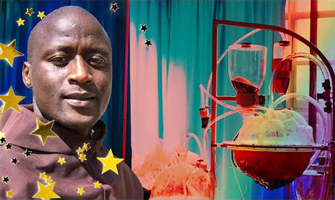

Watch: Inspired Teaching in Kenya. Peter Tabichi left his private school job to teach science and math in the ill-equipped public secondary school in Kenya’s remote Pwani Village. His students garnered recognition from The Royal Society of Chemistry for harnessing local plant life to generate electricity.
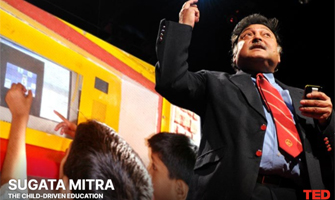

Watch: The Child-Driven Education. Sugata Mitra tackles one of the greatest problems of education — the best teachers and schools don’t exist where they’re needed most. In a series of real-life experiments from New Delhi to South Africa to Italy, he gave kids self-supervised access to the web and saw results that could revolutionize how we think about teaching.
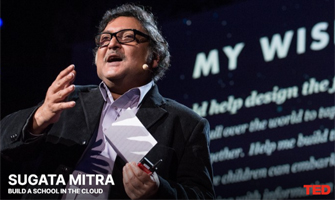

Watch: Build a School in the Cloud. Sugatra Mitra’s idea for a School in the Cloud, a learning lab in India, where children can explore and learn from each other using resources and mentoring from the cloud. Hear his inspiring vision for Self Organized Learning Environments (SOLE), and learn more.
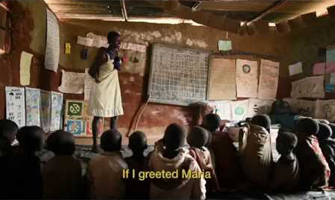

Watch: BRAC and the LEGO Foundation Collaborate on Play-to-Learn Project. Children are able to explore different aspects of their identity and increase collaboration through play.
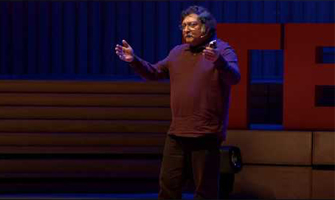

Watch: The Future of Learning. Almost twenty years of experiments with children’s education takes us through a series of startling results – children can self organise their own learning, they can achieve educational objectives on their own, can read by themselves.
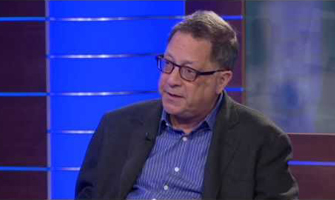

Watch: Union City May Provide a Blueprint for Failed School Systems. The announcement that the state will take over Camden’s public schools turned attention to one of the most troubled school districts in the nation. University of California professor David Kirp points to Union City as one of the unsung success stories in public education.
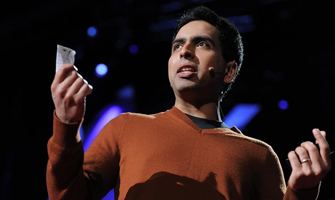

Watch: Let’s Use Video to Reinvent Education. Salman Khan talks about how and why he created the remarkable Khan Academy, a carefully structured series of educational videos offering complete curricula in math and, now, other subjects. He shows the power of interactive exercises, and calls for teachers to consider flipping the traditional classroom script — give students video lectures to watch at home, and do “homework” in the classroom with the teacher available to help.
Intercultural Understanding and Empathy
Watch: So Human, So Chimp. Alan Alda explores how much of the “Human Spark” flared only since we evolved away from our non-human primate cousins, and how much was already there at the parting of the ways.


Watch: Morality Without Religion, TEDxPeachtree. Frans de Waal says, “I am not sure that religion is at the root of morality because I personally think that morality existed before we had religions … all human societies have a form of religion so what does religion contribute to human society – that’s the question.”


Watch: Experiments with altruism in children and chimps. A series of experiments testing altruism in both very young children and chimpanzees.

Watch: Are we born with a moral core? The Baby Lab says ‘yes’. Yale University researchers say babies are born with knowledge of right and wrong. A test with puppets shows babies preferring the “good” character most of the time.


Watch: The psychology of evil. Philip Zimbardo knows how easy it is for nice people to turn bad. In this talk, he shares insights and graphic unseen photos from the Abu Ghraib trials. Then he talks about the flip side: how easy it is to be a hero, and how we can rise to the challenge.
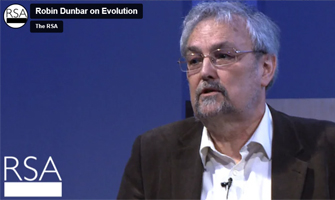

Watch: Robin Dunbar on Evolution. Evolutionary anthropologist Robin Dunbar discusses the cognitive and social underpinnings of human evolution.
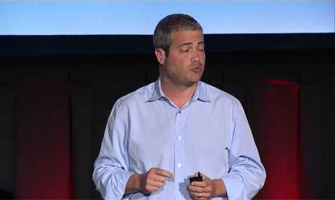

Watch: The Social Brain and its Superpowers. Neuroscientist Matthew Lieberman explains that through his studies he’s learned that our kryptonite is ignoring the importance of our social superpowers and by building on our social intuition, we can make ourselves smarter, happier, and more productive.
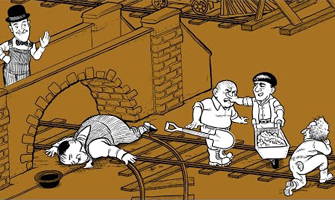

Watch: The Trolley Problem. Is sacrificing one life to save the lives of many others the best possible outcome? Do you draw conclusions from how things are to think about how things should be? There might be a gap in your reasoning. One moment can change everything.


Watch: Jonathan Haidt – The Righteous Mind: Why Good People are Divided by Politics and Religion. Why can’t our political leaders work together as threats loom and problems mount? Why do people so readily assume the worst about the motives of their fellow citizens? In The Righteous Mind, social psychologist Jonathan Haidt explores the origins of our divisions and points the way forward to mutual understanding.


